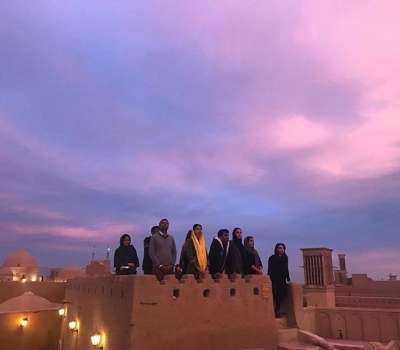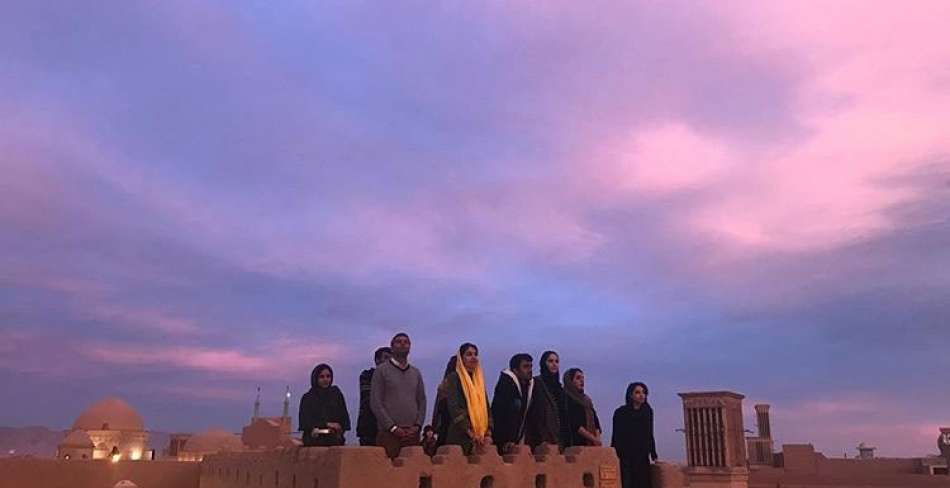

Iran with an area of 1,648,000 sq km (636,296 sq mi), is a vast country located in Middle East neighboring Turkmenistan, Azerbaijan and Armenia on the north, Afghanistan and Pakistan on the east, and Turkey and Iraq on the west. Iran, known as one of the world’s oldest civilizations has been the center of many different civilizations such as the Kassites, Mannaeans, Gutians which has wide-richly influenced many countries such as Greece, Macedonia, and Italy and has witnessed many historical conquests of adjacent regions.
Iran, historically know as Persia, is a country with a 7000-year-old history having lots of great figures such as Cyrus the Great, Darius the Great, Avicenna, Rumi, Khayyam, and a lot more. This ancient land with great and world-famous figures houses the people with a rich culture who always tried to preserve their customs and culture despite the huge changes in empires and dynasties governing this country. Here, we introduce you briefly but to the point Iranian culture, so you can acquaintance with Iranians and their culture effectively.
.jpg)
Religion in Iran
According to historical evidence, Iranians have always been monotheistic through the history. Iranians used to be Zoroastrians who converted to Islam after Arab Invasion in 7th century AD. Now, according to the state statistics, around 90% of Iranians are Shiite Muslims and other minorities include Sunni Muslims, Bahais, Mandeans, Yarsanis, Zoroastrians, Jews, and Christians who together contain 5-10% of the population.
.jpg)
Language in Iran
The most widely spoken as well as official language in Iran is Persian. Around 53% of Iranians speak in Persian and Persian dialects, however; other languages such as Azerbaijani, Kurdish, Luri, Mazandarani, Gilaki, Balochi, Turkmen and Arabic are spoken in different parts of the country. Religious minorities speak their religion language among their ethnics such as Armenians who speak Armenian or Zoroastrians who speak Persian Dari or Gabri. Many businesspeople and officials speak English, French and German, too.
Iran’s Ethnic Groups
Iranians were originally a nomadic group of Aryans migrated to Iran Plateau and settled there. Over years, Aryans were parted into different groups and the main groups were the Medes and Parthia. After Parthia’s conquer over the Medes, the land was known as Persia (land of Pars) and all the people living here were known as Persians throughout the history. Although original inhabitants of Iran were Aryans, in following periods they were blended with other ethnics including Turks, Kurds, Lurs, Gilakis, Mazandaranis, Tats, Talysh, Balochs, and Arabs invading or immigrating to the country. In recent centuries, the country was renamed from Persia into Iran (land of Aryans) and the inhabitants were called Iranian. Today Iranian and Persian are mainly used interchangeably.
.jpg)
.jpg)
Iranian People
Though Iran is a country with a long history and varieties and ethnics, its people have always preserved their customs and cultures from their ancestors and conveyed it to their generations. So the culture has remained rich through ages of different invasions and migrations of different groups. They have many beautiful customs and traditions which are significantly meaningful. From these traditions, the one which is in the highest rank is family. In other words, Iranians are famous for loving God, loving Iran and loving Family.
Family in Iran
Iranians are not only close to their own family members, but also to their extended family members. They have great respect for elderly. Another important thing for them is a guest, they are famous for being hospitable and kind to their guests. So, if you travel to Iran, be ready to be invited to have tea or a meal with Iranians who you do not know at all.
.jpg)
Etiquettes and Customs Visiting Local People
If you are invited to visit local people, we recommend you to meet the following etiquettes:
• Iranians like taking and giving gifts. So if you are invited to their house in advance, take some gift for them.
• Say Hello to all the members of the family who are hosting you even the children. Start with the oldest person.
• It is customary to shake hands with the same sex. Avoid shaking hands with the people from opposite sex, unless they stretch out their hands to you. In informal meetings, it is normal to be kissed three times on your cheek (of course between the same sex).
• If your hosts are not wearing shoes, take off yours at the door.
• Unlike European culture, gazing downward doesn’t mean lack of confidence or interest but a sign of respect, especially between opposite sexes.
• The core concept in Persian culture is called Taarof, but what is it? It is offering to do some favor or have something to eat or drink. However, the first time you are offered something to eat or drink or receive a favor, you should deny it. After being insisted, it is the time to act humbly and accept their offering.
• At dining time, try to taste every dish on the table. Keep in mind that, lots of Iranians have their meals on the ground on a nicely designed and decorated plastic matt called sofreh. Iranians usually have their food using spoons and forks.
• It is customary to be offered another pick of food for second or even third time. So one way to show your host that you don’t need any more is to thank the host/s when you finished your meal. Do not leave food on your plate as it can be sign that you didn’t like the food. Be cautious not to look at someone else’s meal.
• When leaving the house, make sure to thank your host/s again, shake hands, and say good-bye to everyone.
• It is customary for women to wear head scarf and loose clothing.
• If you are travelling to Iran in Ramadan, remember that drinking, eating, and smoking in public are prohibited during the day.
Marriage and Wedding Ceremonies in Iran
As it was mentioned earlier, family is highly important for Iranians and marriage as the main form of forming a family important and holy for them. They normally don’t leave their parents’ house before getting married. In Iran, marriage is conducted in two stages: the first stage is called Aghd, a ceremony where a couple sign marriage contract and the second step is called Jashn-e aroosi (wedding celebration). When Jashn-e aroosi is over, the bride and groom move to their house to start their married life. The guests for the wedding celebration are required to take some gift such as a flower bunch, a gold coin, or money in gift packets.
.jpg)












.jpg)
.jpg)
.jpg)
.jpg)
.jpg)
.jpg)

